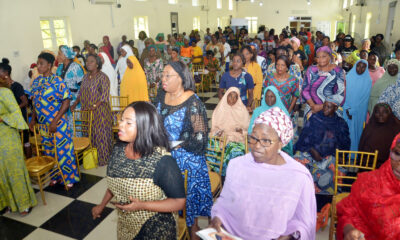Naira
ATMs Still Dispensing Old Notes Despite CBN Directives
The Central Bank of Nigeria has warned commercial banks against stocking their Automated Teller Machines, ATMs with the old naira notes

Naira
Naira Appreciates to N1,136/$ Officially, N1,050/$ Parallel Market
Naira
Naira Hits Eight-Month High at 1,120/$ Amidst Central Bank Reforms
Naira
Dollar to Naira Black Market Today, April 9th, 2024
As of April 9th, 2024, the exchange rate for the US dollar to the Nigerian Naira stands at 1 USD to 1,200 NGN in the black market, also referred to as the parallel market or Aboki fx.
-

 Forex1 week ago
Forex1 week agoZiG to the Rescue: Zimbabwe Shifts Gear with New Currency Backed by Gold
-

 Naira4 weeks ago
Naira4 weeks agoDollar to Naira Exchange Rate at Black Market Today, March 21st, 2024
-



 Naira1 week ago
Naira1 week agoDollar to Naira Black Market Today, April 9th, 2024
-

 Company News4 weeks ago
Company News4 weeks agoNNPC Gears Up for Public Listing, Embraces Full Commercialization
-



 Naira1 week ago
Naira1 week agoDollar to Naira Black Market Today, April 8th, 2024
-





 Naira3 weeks ago
Naira3 weeks agoDollar to Naira Black Market Today, March 26th, 2024
-

 Billionaire Watch6 days ago
Billionaire Watch6 days agoNigerian Billionaire Tony Elumelu Contemplates Acquiring NPFL Club
-

 Banking Sector3 weeks ago
Banking Sector3 weeks agoSafaricom, Access Holdings Forge Partnership to Revolutionize Remittance Corridor in Africa






















